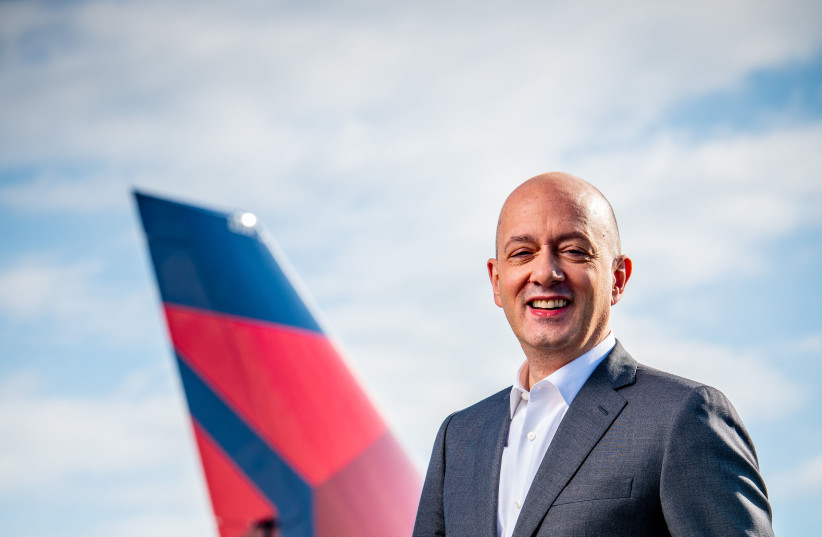During a press meeting, Delta Air Lines’ VP EMEAI Nicolas Ferri presented details on the airline’s upcoming direct route between Tel Aviv and Atlanta, as well as statistics from Delta’s performance this year.
Delta will be reopening its Tel Aviv - Atlanta direct flights in March 2023, and expects to run 13 weekly flights from Israel to the US that summer, offering 3,700 seats per week. This move illustrates the relatively high volume of travel that the airline expects to see upon the route’s launch. “I think it'll be a very strong flight because people can get anywhere from Atlanta,” Ferri said.
On that note, he explained the decision to utilize Atlanta as a central hub for connecting flights from Israel, which comes down to connectivity. As with other airlines, Delta operates on a hub-and-spoke system: essentially, the airline’s larger hubs have a larger Delta presence and infrastructure, and thereby serve as easier connection points for multi-stage trips to other, more out-of-the-way destinations. Seeing as Atlanta houses the company’s international headquarters, it makes for a prime hub to connect flights from.
What are Delta's statistics?
Highlighting some of Delta’s statistics, Ferri pointed out that, based on domestic gateway revenue share, the airline comes in at #1 in Boston, Atlanta, New York (both LaGuardia and JFK), Detroit, Minneapolis, Salt Lake City and Los Angeles. As well, Delta ranks #2 in Seattle, where it is “growing very fast,” said Ferri.
“Waking the airline up was very difficult mostly because customers came back very, very quickly. And the infrastructure, the ecosystem wasn't quite ready yet. Whether it was the airport environment, whether it was security checks, whether it was frankly, employees around the world, we were incredibly well surprised by how fast customers decided to come back to travel. We were extremely excited, but there were some growing pains.”
Nicolas Ferri
Ferri noted the challenge presented by the COVID pandemic, stating: “Waking the airline up was very difficult mostly because customers came back very, very quickly. And the infrastructure, the ecosystem wasn't quite ready yet. Whether it was the airport environment, whether it was security checks, whether it was frankly, employees around the world, we were incredibly well surprised by how fast customers decided to come back to travel. We were extremely excited, but there were some growing pains.”

As of today, however, Delta has recovered from the pandemic handily. “Actually, we’re at a little bit more than 100% revenue recovery,” Ferri said. “The airline’s seat offering is still a little below 2019 levels, so the dynamics are actually positive: you see higher revenue recovery on less capacity. So that means strength around the network.”
Ferri also noted that the pandemic has resulted in a higher amount of money spent by everyday travelers. “There's a whole new segment of the market that we've called ‘premium leisure’ that has really become much stronger after the crisis than it was before,” he said. “It's people who've been cooped up in their homes for two years, can't wait to get out and they have decided ‘you know what, I'm going to splurge a little.’”
When asked about Delta’s plans for reaching carbon neutrality, Ferri elaborated on Delta’s current efforts toward meeting its 2050 carbon neutrality goal.
“We have a big team that's dedicated only to sustainability, so we're [very focused on] innovation — that's a word that resonates here in this country,” he said, going on to list fleet improvement, the utilization of SAF (sustainable aviation fuel), the elimination of single-use plastics in favor of compostable materials such as bamboo and a carbon offset program as some of Delta’s primary initiatives.
